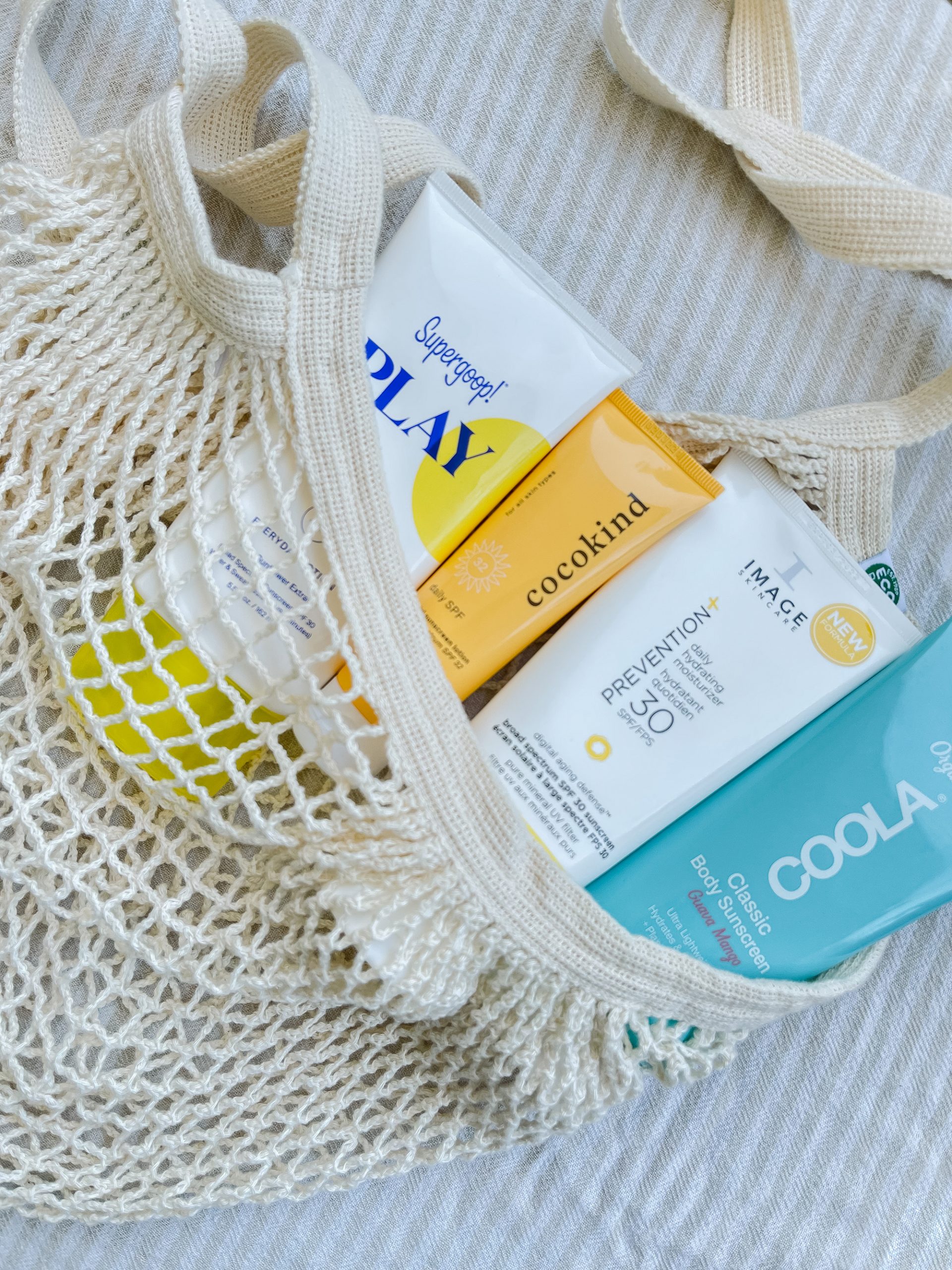What Kind Of Sunscreen Should You Use?

Finding the right sunscreen can seem like a daunting task. There are tons out there filled with verbiage like “broad spectrum,” “PA+++,” “mineral-based,” and more, and it can get confusing. But don’t worry, we’re here to help. Today, we’re making it a little easier by sharing our knowledge on all things sunscreen. From physical versus chemical sunscreen, to which types you should be using, keep reading for more…
What is a physical sunscreen?
Physical sunscreens use mineral-based ingredients to protect your skin from the sun. You will see zinc oxide and titanium dioxide on the ingredient lists of many physical sunscreens. These ingredients help to scatter and reflect harmful UVA and UVB rays.
Shop Physical Sunscreens…
What is a chemical sunscreen?
Conversely, chemical sunscreens absorb UV rays and help to reduce UV penetration into your skin. Though there are 12 different active ingredients the FDA allows in chemical sunscreens, the most common ones include avobenzone, oxybenzone, octisalate, homosalate, octinoxate,and homosalate, according to Kaitlyn Pirie on Prevention.com.
Shop Chemical Sunscreens…
Which one should I use?
Well, it depends. Many people like using physical sunscreens because they reflect and scatter the sun’s rays, and they are good options for those with sensitive skin types. The ingredients they use are often better for your skin and more reef-friendly, too. However, the downside to wearing a mineral-based sunscreen is that it can leave a major white cast.
In comparison, many chemical sunscreens can blend very well into your skin whilst still providing protection, however some of the active ingredients, like oxybenzone, can irritate your skin. There have also been recent studies that have shown some ingredients in chemical sunscreens might be harmful to marine life, per Julia Calderone at Consumer Reports.
If you’re not sure what kind of sunscreen you should use, always speak with your doctor for a professional opinion.
Does it matter how much SPF is in my sunscreen?
Yes! Dermatologists will usually recommend at least an SPF of 30. It’s important to note that sunscreen with SPF higher than 50 only provides a minimal increase in protection and will last the same amount of time as a lower SPF sunscreen would, according to the Mayo Clinic.
What does it mean when a product has SPF, broad spectrum, and/or PA+++ in its label?
SPF, which stands for sun protection factor, measures UVB ray protection. If you’ve seen sunscreens with words like “broad spectrum” or “PA” included on their labels, that means they measure UVA protection, according to SuperGoop!. UVB rays cause your skin to turn red and burn, while UVA rays cause damage to your skin’s genes. When you’re purchasing a sunscreen, you’ll want to find one that includes protection for both UVA and UVB rays. Look for sunscreens that have both SPF and broad spectrum or “PA” on their labels.
How much and how often should I reapply?
If your sunscreen product has specific instructions on how often you should reapply, then follow those. However, as a general rule of thumb, you should reapply your sunscreen every two hours.
Does it matter what form my sunscreen comes in?
Whether it’s a lotion, spray, powder, or stick, the most important factor is that you’re actually wearing sunscreen consistently. The form your sunscreen comes in is based on your needs. Sunscreen sticks are great for application around your eyes while lotions are generally more hydrating for your skin. Though a spray is easier and faster to apply, you may have to apply more frequently. Powders are great for touching up your face, especially with makeup on. Make sure you’re consulting with your doctor if you have any specific questions regarding your skin type.
Shop Powder Sunscreens…
Shop Sunscreen Sprays…
Shop Sunscreen Sticks…
What are other ways I can protect my skin from the sun?
Aside from always wearing sunscreen, reducing your exposure {when possible}, wearing long-sleeve clothing, wide-brimmed hats, sunglasses, and bringing an umbrella to those long beach days are other great ways to protect your skin from the sun.
What are some of your favorite sunscreens to use?
Let us know in the comments bellow.
XO Team LC
Photo: Kyrena Dudley
Affiliate links may have been used in this post.
References:
Katilyn Pirie, Should You Wear Physical or Chemical Sunscreen? A Dermatologist Explains the Difference, Prevention.Com
Julia Calderone, The Truth About ‘Reef Safe’ Sunscreen, ConsumerReports.Org
What’s the Deal with “PA+++” on Sunscreen Labels?, TheBrightSide.Supergoop.com
Mayo Clinic Staff, Best sunscreen: Understand sunscreen options, MayoClinic.org

